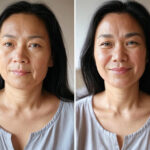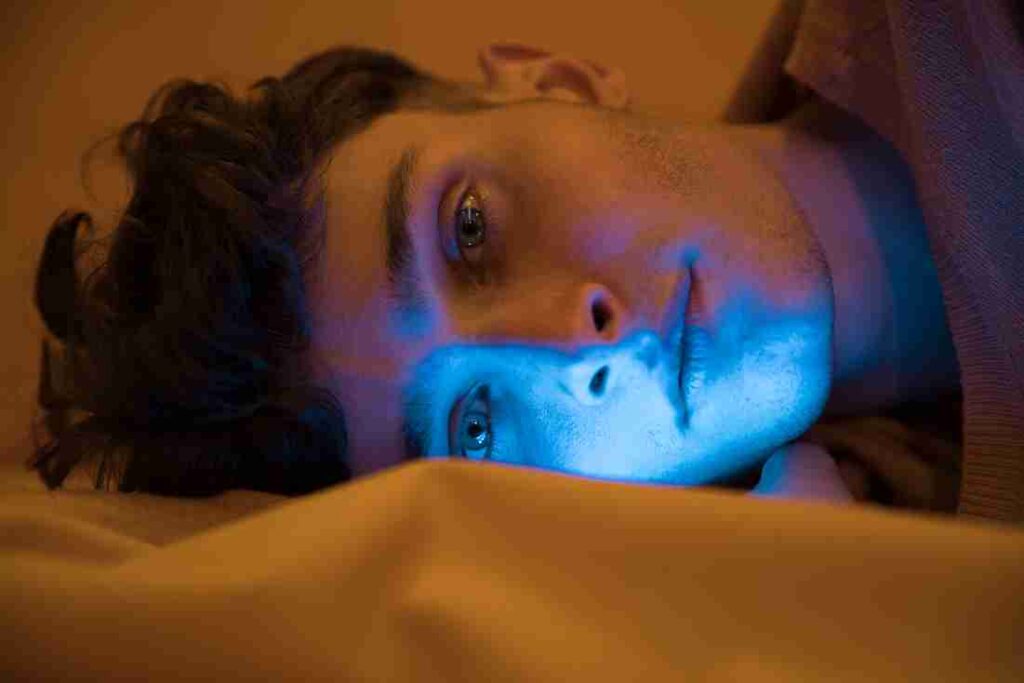You’ve probably heard of insomnia. Maybe even sleep apnea. Those are the usual suspects when someone can’t sleep.
But here’s something people don’t talk about enough; not all sleep problems are that obvious. Some of them are quiet. Strange, even. And they don’t always make you toss and turn at night. They just leave you feeling awful in the morning, and you’re not sure why.
People often jump to conclusions. Stress, too much coffee, maybe bad posture. They never stop to think that the way they sleep, or what happens during sleep, could be the real issue.
In this blog, we’ll walk through a few of those lesser-known sleep disorders that are often overlooked. We’ll also explore how they mess with your days, your mind, and even your head. The link between headaches and lack of sleep isn’t just a theory. It’s real, and we’ll get to it.
But first, let’s figure out why some of these disorders are so easy to miss.
What Makes a Sleep Disorder So Hard to Spot?
Most people assume sleep issues mean one thing: not sleeping enough. But that’s only half the story.
Truth is, you can sleep 8–9 hours and still wake up tired. You can fall asleep fast and still feel foggy all day. That’s because some disorders don’t ruin your sleep, they just mess with what happens during it.
Additionally, these disorders don’t always raise alarms. They don’t cause screaming nightmares or sleepless nights. They slide into your routine, quietly. You forget your dreams. You forget how long it’s been since you woke up feeling rested.
Here’s what makes it difficult: some sleep problems don’t happen every night. They come and go, so people assume it’s nothing serious, just an occasional bad night’s sleep.
But if it keeps happening, and your mornings keep getting harder, it’s worth paying attention. Especially if your mood and memory are taking a hit, too.
The One Where You Eat in Your Sleep
Yeah, this one sound strange. But it’s real. It’s called Sleep-Related Eating Disorder, or SRED. People with SRED get up and eat while they’re not fully awake and often don’t remember a thing.
We’re not talking about grabbing a midnight cookie. People with SRED have been known to eat things like frozen meat, entire jars of peanut butter, and even inedible stuff like paper or raw dough.
And it’s not just embarrassing. It’s dangerous.
You might wake up and wonder where the food went. Or find a mess in the kitchen. People often blame stress-eating or poor memory, but that’s not the whole picture.
If you live alone, it can go unnoticed for months. But if someone tells you they saw you eating in your sleep, believe them. It’s not as rare as it sounds.
When Dreams Turn Physical
Here’s another one most folks haven’t heard of: REM Sleep Behavior Disorder. Basically, people act out their dreams while they’re still deep asleep.
They might talk, kick, punch, even fall out of bed. The dreams are usually intense. Sometimes violent. And the body forgets to stay still, which it’s supposed to do in REM sleep.
This can be scary. Not just for the person with it, but for their partner. People have gotten injured during these episodes without knowing why.
Older adults get this more often. And sometimes it shows up before other conditions like Parkinson’s.
So, if someone tells you that you move too much in your sleep, or if you wake up with bruises you can’t explain, this one’s worth checking into.
Exploding Head Syndrome (Not as Scary as It Sounds)
The name’s awful But Exploding Head Syndrome isn’t what you think.
It’s not painful. It’s not fatal. What happens is, just as you’re drifting off, you suddenly hear a loud noise, like a bomb, crash, or shout. But there’s no sound. Nothing outside. It all comes from your brain misfiring.
You jerk awake, heart pounding, thinking something bad just happened. But everything’s fine. You’re fine.
And yet, fear sticks. You might even start avoiding sleep just to not feel it again. It’s a strange loop.
Doctors still don’t know why it happens, but they do know it’s not rare. You’re not losing your mind. But it’s deeply annoying.
Sleeping All Night, Still Tired All Day?
This one’s rough. Idiopathic Hypersomnia means extreme daytime sleepiness that doesn’t make much sense.
You sleep long hours. You don’t wake up in the middle of the night. You don’t have insomnia. But still, you can’t stay awake during the day. You might doze off at work. In class. While eating. And naps? They don’t help.
It’s not laziness. It’s not boredom. Your brain just doesn’t seem to wake up the way it should. Some doctors confuse it with depression or burnout. But it’s a different beast. And there’s no clear fix yet.
If this sounds like you, keep track of your sleep patterns and talk to someone who gets it.
When Your Job Destroys Your Sleep
Night shifts. Rotating schedules. Early starts. It’s not just hard on your calendar, it can wreck your body clock, too.
Shift Work Sleep Disorder happens when your internal sleep rhythm and your actual sleep time don’t match. Basically, your body wants to sleep at night, but your job says otherwise.
That mismatch makes you tired, cranky, and forgetful. It also increases the chances of getting sick, making mistakes, or feeling constantly drained.
Tips like these help a bit:
- Keep your sleep schedule consistent, even on weekends
- Use blackout curtains
- Avoid heavy meals or screens before bed
Still, the best fix is aligning your work and sleep schedules, which isn’t always easy.
Can’t Sleep Before 3 AM? It Might Be DSPS
Some people just can’t fall asleep early. No matter what they try, warm milk, no screens, meditation, their body simply isn’t ready until the early morning hours.
That’s Delayed Sleep Phase Syndrome. It’s not a habit. It’s a real shift in the body’s clock. Teens and night owls get this a lot, but so do adults who work late or live online.
You’d think sleeping from 3 AM to 11 AM would solve it. But work and life usually don’t allow that.
That’s when DSPS becomes a problem. People start missing things. Running late. Feeling groggy all day. Not because they’re lazy, but because they’re out of sync with the world.
The Problems Don’t End in Bed
What makes these disorders dangerous is that they don’t just affect your nights but also interfere with your daytime functioning. Many individuals experience symptoms such as headaches, mood swings, and difficulty concentrating. These issues are often addressed with medication, caffeine, or dietary supplements. However, the possibility that sleep disturbances may be the root cause is frequently overlooked.
That’s the key. Sleep impacts everything. Your brain, your hormones, even your immune system. And when it’s off, even just a little, you feel it.
Some warning signs worth noticing:
- Waking up tired no matter how long you slept
- Brain fog or forgetfulness
- Being more emotional or sensitive than usual
- Grinding teeth or biting your tongue while sleeping
- Headaches in the morning
If you’re checking more than one of those boxes, something might be going on while you sleep.
Conclusion
Sleep is more than just rest, it’s the foundation for how we feel, think, and function each day. While insomnia and sleep apnea are widely recognized, many lesser-known disorders can quietly disrupt your life without clear signs. Whether it’s unexplained exhaustion, changes in mood, or morning headaches, these issues may be linked to underlying sleep problems that often go unnoticed. Identifying them early can lead to the right support, treatment, and real improvement in your daily health. If sleep leaves you tired instead of refreshed, it may be time to look closer at what’s happening during the night.
- Sleep Disorders You Might Not Know About
- Let's find out the truth about lack of sleep, it's symptoms and causes in predefined way. This blog will lead you the actual truth of having sleep disorders.
- Sleep Disorders
Related posts:
 Inside the Mind of Jack Allen: Crafting Military Thrillers That Grip You
Inside the Mind of Jack Allen: Crafting Military Thrillers That Grip You
 Eye Hospitals in Visakhapatnam: Advancing Vision Care in Coastal Andhra
Eye Hospitals in Visakhapatnam: Advancing Vision Care in Coastal Andhra
 What Happens If I Stop Getting Anti-Wrinkle Treatments? – Learn
What Happens If I Stop Getting Anti-Wrinkle Treatments? – Learn
 Nature’s Wrap: Exploring the Biodegradable Packaging Revolution
Nature’s Wrap: Exploring the Biodegradable Packaging Revolution
 Reviv Mouth Guard Reviews – Real Results & Feedback from Real Users | Buy Now with Big Discount!
Reviv Mouth Guard Reviews – Real Results & Feedback from Real Users | Buy Now with Big Discount!
 Best Men’s Facial Treatment in Dubai That Clears and Defines
Best Men’s Facial Treatment in Dubai That Clears and Defines
 Understanding CGM: A Complete Guide to Continuous Glucose Monitoring
Understanding CGM: A Complete Guide to Continuous Glucose Monitoring
 Tips for Finding Reliable and Affordable EWOT Systems for Sale
Tips for Finding Reliable and Affordable EWOT Systems for Sale







